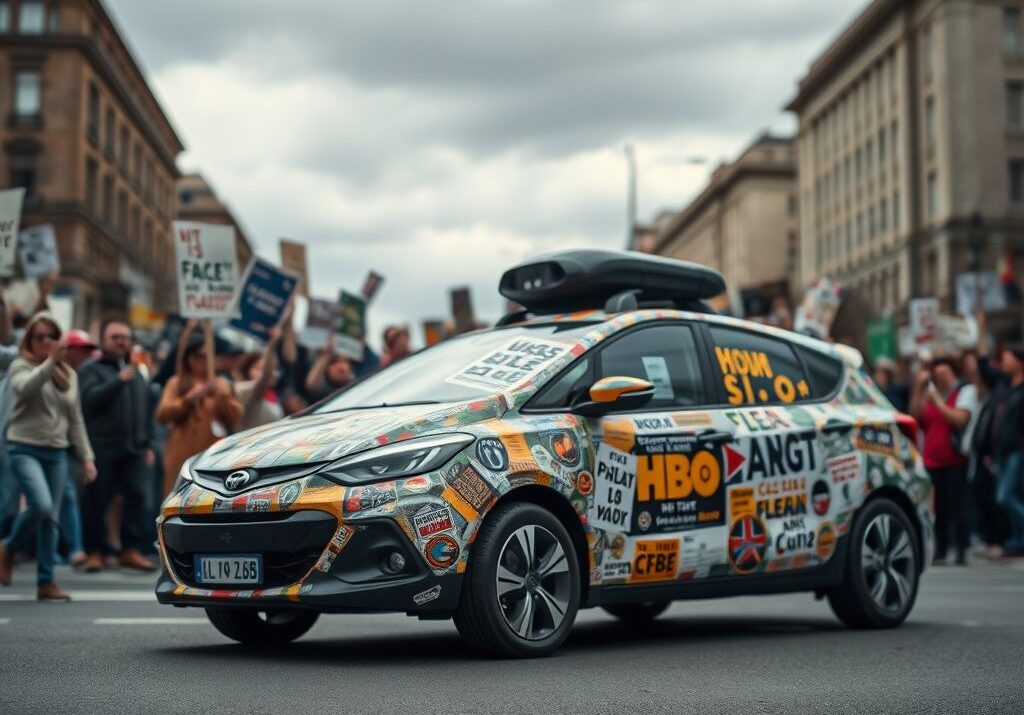Okay, so something interesting caught my eye earlier. I stumbled across a piece on TechCrunch detailing how Waymo, Alphabet’s self-driving car company, is scaling back its operations in response to the “No Kings” protests happening today across the US. These protests, as you probably know, are aimed at voicing opposition to former President Donald Trump and his political agenda.
This got me thinking: What happens when tech companies like Waymo feel the need to react to political situations? Are they simply ensuring public safety, or is there more at play? It’s a slippery slope, right?
It’s easy to assume they are neutral, but recent data suggests that customers are becoming more politically aware of the companies that are servicing them. A 2022 study by Sprout Social revealed that 70% of consumers believe brands should take a public stand on social and political issues. Whether or not this is true, this also come with significant risk.
Think about it: Waymo is making a calculated decision, assessing the potential risks associated with the protests. This isn’t just about traffic jams; it’s likely factoring in potential disruptions, safety concerns for their vehicles, and even the image of their brand. While Waymo hasn’t explicitly stated their political stance, limiting service during a protest sends a message. The question is, what message?
A similar situation occurred in 2017 when Uber was accused of trying to break a taxi strike that was protesting trumps policies, by turning off its surge prices when all taxis were out of service, after the backlash the CEO apologized
So, what’s the real deal here? It’s a complex mix of factors that boils down to risk management, brand perception, and the increasingly blurred lines between corporate responsibility and political engagement.
Here are my five key takeaways from this situation:
- Safety First, Always: Waymo’s primary concern is likely the safety of its passengers and vehicles during potential protest-related disruptions.
- Brand Image Matters: Companies are hyper-aware of how their actions are perceived and how those perceptions can affect their bottom line. A misstep could lead to a social media storm.
- Political Neutrality is Tough: Remaining completely neutral in a politically charged environment is becoming increasingly difficult for companies. Any action (or inaction) can be interpreted as a statement.
- Tech’s Influence is Growing: Tech companies wield significant power and influence, and their decisions can have a ripple effect on society.
- Customer Expectations are Shifting: People are expecting more from the brands they support. They want companies to align with their values and take a stand on important issues. Data from Accenture shows that 62% of consumers want companies to stand up for the issues they are passionate about.
FAQ: Waymo and the “No Kings” Protests
- What are the “No Kings” protests about?
The “No Kings” protests are nationwide demonstrations against former President Donald Trump and his policies.
- Why is Waymo limiting its service?
Waymo is likely limiting its service due to potential safety risks and disruptions associated with the protests.
- Is Waymo taking a political stance?
Waymo hasn’t explicitly stated a political stance, but limiting service during a protest can be interpreted as a message.
- How do companies balance safety and freedom of expression?
It’s a difficult balance. Companies need to prioritize safety while also respecting the right to protest.
- What factors influence a company’s decision to react to political events?
Factors include risk management, brand perception, customer expectations, and potential for disruption.
- Are companies obligated to take a stand on political issues?
There’s no legal obligation, but societal pressure is increasing for companies to align with values.
- How can consumers know if a company shares their values?
Research the company’s actions, statements, and history on social and political issues.
- What are the potential consequences of a company taking a political stand?
Positive consequences include increased brand loyalty. Negative consequences include boycotts and loss of customers.
- How does Waymo’s decision affect its users?
Some users will experience limited service, while others may view the decision as a responsible action.
- What does this event say about the relationship between tech and politics?
It highlights the increasingly intertwined nature of tech and politics, and the challenges companies face navigating this complex landscape.








